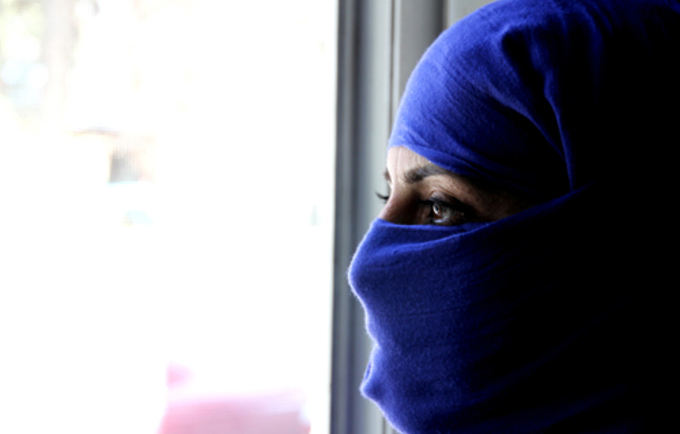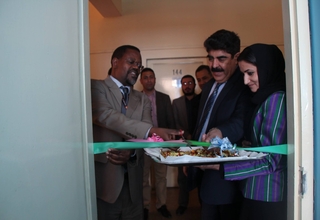Shakiba, mother of four, sought refuge in Pakistan when the Taliban took over Mazar-i-Sharif.
After many years living with her family-in-law in the neighbouring country, she received a call to return to Afghanistan: her father was very sick and needed her support. "I took my youngest son and went to visit my father", recalls Shakiba with sadness. "He passed away a couple of days after my arrival." With a broken heart, Shakiba returned to Pakistan, not knowing that more shocking news was yet to come.
"When I arrived, my husband and three children were gone. Nobody wanted to tell me what had happened to them", says Shakiba. "Soon my in-laws threw me out of their house and there I was: homeless with my child." Eventually, Shakiba found out that her husband had abducted her children and moved to Sweden. Several attempts to get her children back via the Swedish government failed, and after helplessly trying to reunite her family, she moved back to Afghanistan with her mother and brother.
Shakiba's abduction of her children and the expulsion from her home weren't her first experiences suffering violence. "My family married me off when I was 15 years old. My life has been marked by violence and sadness ever since", shares Shakiba. "My in-laws bribed the local government so my age on the marriage certificate would be 18, for it was against the law to marry that early." Soon after her marriage, she moved to Pakistan where, as she recalls, all the abuse started. "I lived together with my in-laws and there was a lot of tension between me and my sisters-in-law", says Shakiba. "They used to beat me and treat me like their maid. In that house I had no rights. Even my children were being abused."
Support
Once back in Afghanistan she started working as a teacher, which barely provided food for her and her son. Despite the lack of money, she managed to enrol in the nursing school and graduated. Today she works at Balkh Hospital in Mazar-i-Sharif.
It was through her work that she got to know about the Family Protection Centre. "The first time I saw one of the counsellors talking to a patient I was impressed. That day I decided to visit it. I felt like I needed psychological support. All these years of misery made me depressed: I hated myself and there were times when I wanted to commit suicide." Thanks to the support received by the Family Protection Centre in Balkh hospital, Shakiba managed to regain her confidence. The counsellors invested a lot of times talking to Shakiba. "I felt that I needed to tell my story to someone. My memories tormented me for so many years. Although I started a new life, I felt like I didn't close the chapter of my life that was marked by violence and abuse."
The first Family Protection Centre opened in 2013 in Kabul. Nangarhar followed by those in Herat, Balkh, Bamiyan and Baghlan. Within a year of their establishment, these facilities assisted 1,800 survivors of gender-based violence, most of whom reported physical violence, with others reporting psychological violence, forced or early marriage, and denial of resources and rape.
Proud
Nowadays Shakiba is like a new person. She is confident about herself and her life is back on track.
"All my life I tried to live with dignity and I tried to earn money in a halal way", she says proudly.
She often thinks about her children. Via family and connections she knows that her eldest son and daughter are married. "I have only met my eldest son, who visited Afghanistan to get married. He looked for me and we met. I was very happy and wish my other two children will also contact me."
To support gender-based violence survivors accessing the law and knowing about their rights, the Ministry of Public Health, with the technical support of UNFPA and with the funding support of the Government of Republic of Korea, Italian Development Cooperation and the Government of Canada, established the Family Protection Centres (FPC). Family Protection Centre is a service hub located in hospital in which victim is safe, less restricted in mobility, not exposed to additional risk, providing psychosocial and trauma counseling, medical treatment, information on options of services, basic legal assistance, liaising with necessary services and referrals to legal actors such as the Family Response Unit of the Ministry of Interior Affairs or Department of Women's Affairs of Ministry of Women's Affairs.
They help to collect evidence and information regarding the cases they managed and refer them to the relevant institutions, if required. Since they are located inside hospitals, women feel comfortable accessing them as they do not draw undue attention to themselves.



